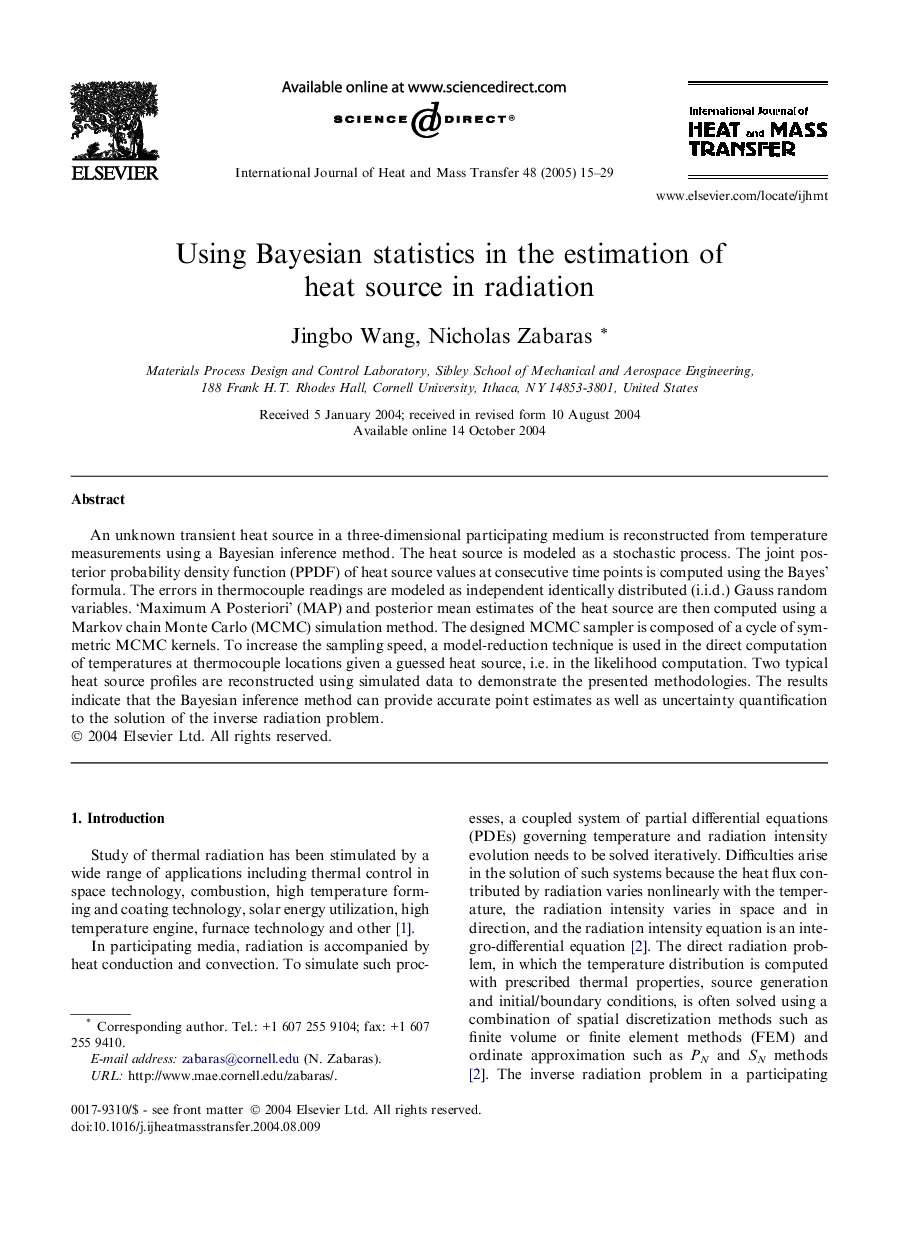| Article ID | Journal | Published Year | Pages | File Type |
|---|---|---|---|---|
| 9691700 | International Journal of Heat and Mass Transfer | 2005 | 15 Pages |
Abstract
An unknown transient heat source in a three-dimensional participating medium is reconstructed from temperature measurements using a Bayesian inference method. The heat source is modeled as a stochastic process. The joint posterior probability density function (PPDF) of heat source values at consecutive time points is computed using the Bayes' formula. The errors in thermocouple readings are modeled as independent identically distributed (i.i.d.) Gauss random variables. 'Maximum A Posteriori' (MAP) and posterior mean estimates of the heat source are then computed using a Markov chain Monte Carlo (MCMC) simulation method. The designed MCMC sampler is composed of a cycle of symmetric MCMC kernels. To increase the sampling speed, a model-reduction technique is used in the direct computation of temperatures at thermocouple locations given a guessed heat source, i.e. in the likelihood computation. Two typical heat source profiles are reconstructed using simulated data to demonstrate the presented methodologies. The results indicate that the Bayesian inference method can provide accurate point estimates as well as uncertainty quantification to the solution of the inverse radiation problem.
Related Topics
Physical Sciences and Engineering
Chemical Engineering
Fluid Flow and Transfer Processes
Authors
Jingbo Wang, Nicholas Zabaras,
